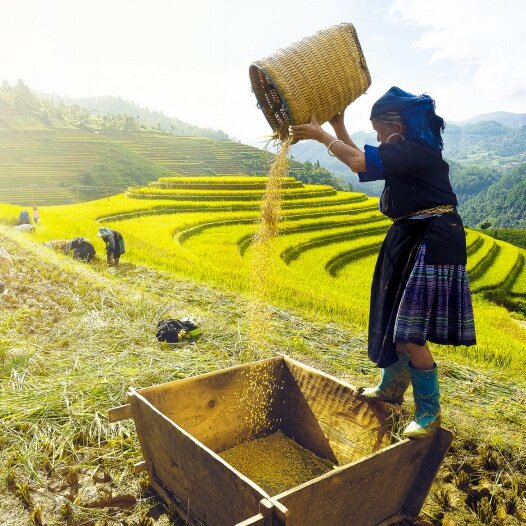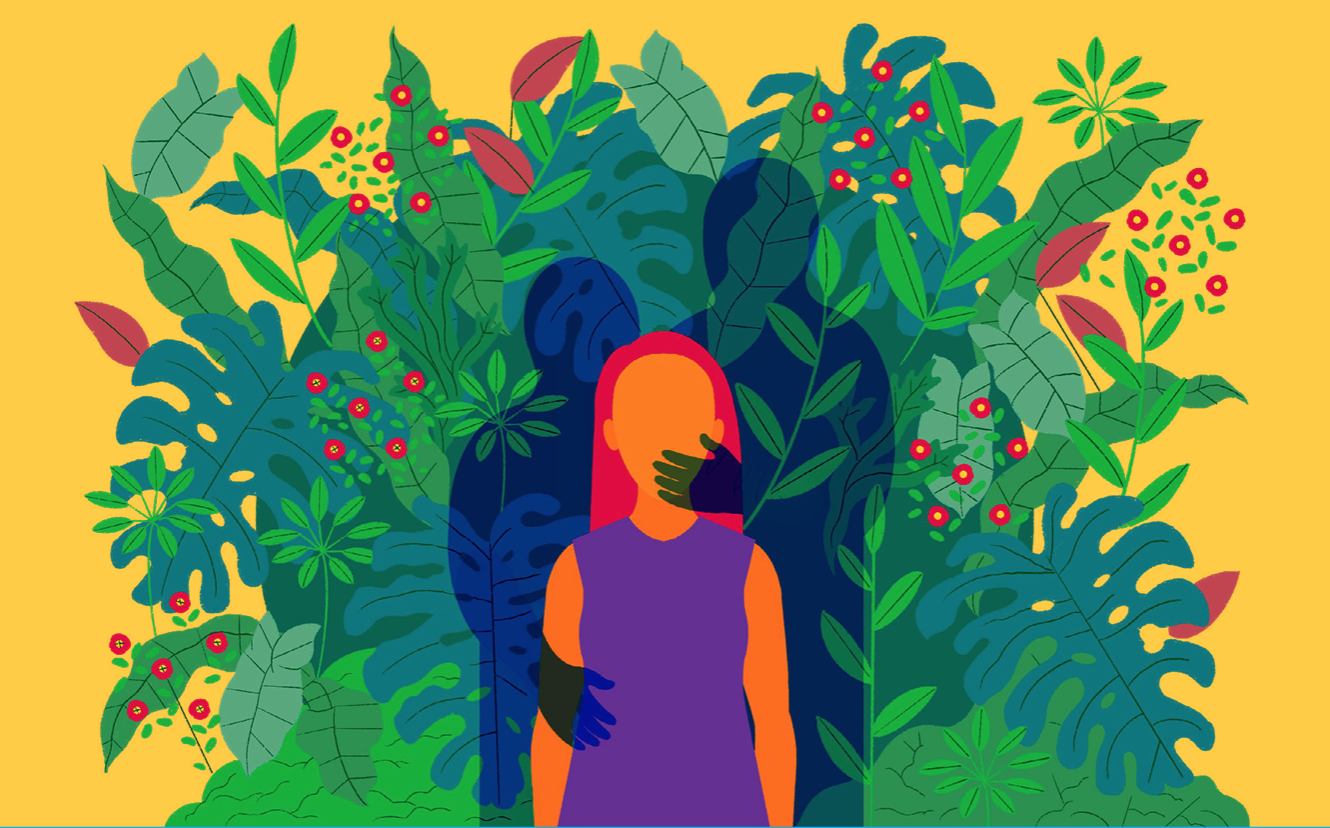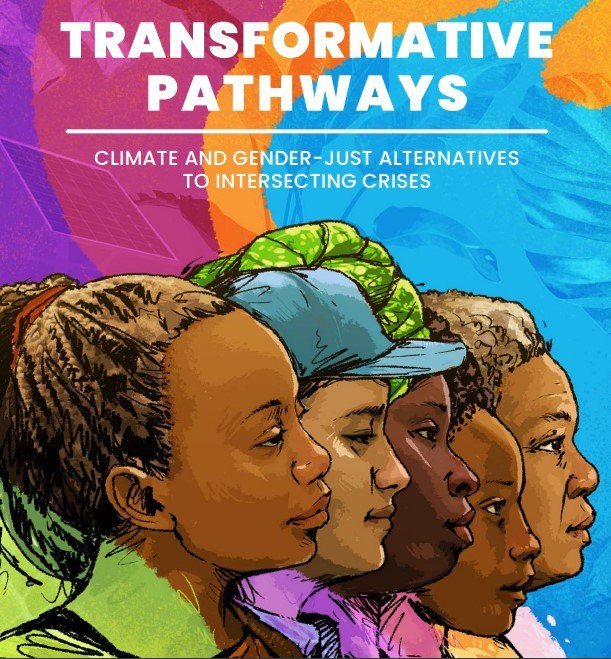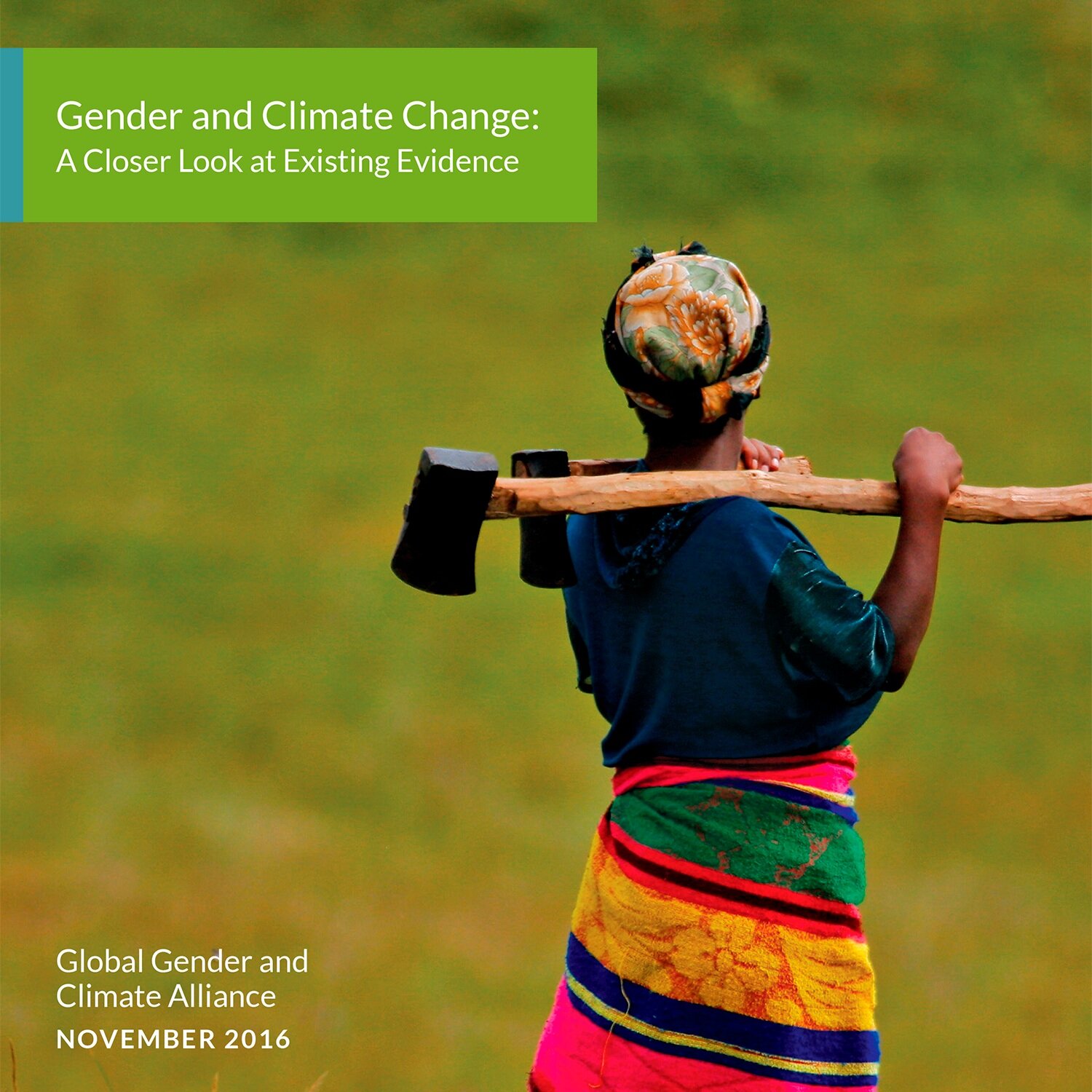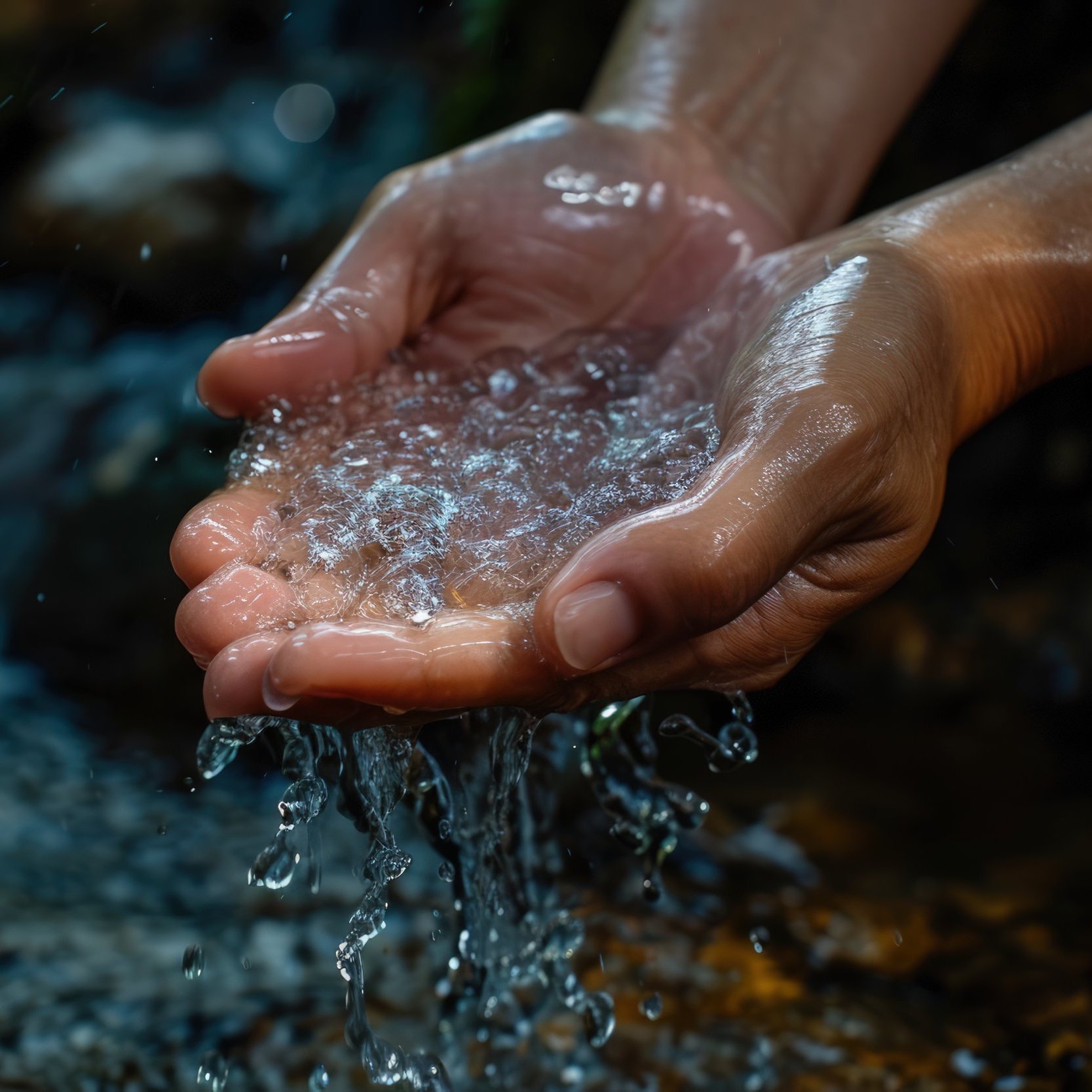
Research
Featured Content
“THINK PIECE: GENDER AND CLIMATE CHANGE IN THE CONTEXT OF COVID-19”
This publication by UN Environment Programme, UN Women and EmPower (Women for Climate-Resilient Societies), approach gender and climate change in the context of COVID-19, presenting links and differentiated impacts of climate change and COVID-19 as well as recommendations for action to ensure climate resilient post-COVID-19 recovery.
June, 2020
Biodiversity
“WOMEN IN FORESTRY: CHALLENGES AND OPPORTUNITIES”
Report by the Food and Agriculture Organization (FAO) of the United Nations about the roles of women and men in forestry and agroforestry systems in developing countries, including policies to empower women in the forest sector - affecting food security and nutrition and the sustainable management of forests.
July, 2014
“FORESTS & GENDER”
Book published by the International Union for Conservation of Nature (IUCN), in collaboration with the Women’s Environment & Development Organization, about gender and forest policies, including REDD+, as well as country case studies.
July, 2011
Capacity-Building
“MIGHTY WOMEN: PERFORMANCE OF GROUPS ON THE SOCIO-ENVIRONMENTAL AGENDA - EXPERIENCES IN SOUTH AMERICA”
In celebration of the first five years of the GAGGA Alliance, this publication reports their incredible achievements towards strengthening the defense of women's rights and environmental justice at local, national, regional, and global levels. Their priorities include women's political and economic empowerment and autonomy, as well as organizational strengthening of grassroots groups to catalyse the collective power of women's rights and environmental movements.
January, 2019
“CLIMATE+WOMEN: THE BUSINESS CASE FOR ACTION”
Publication by BSR, this report is part of a series of six climate nexus reports that explores the interaction between business, climate, and areas such as human rights, supply chain and health. In this paper, the intersection between climate change and women’s empowerment in a business context is explored with focus on the capacity of women to promote climate resilient solutions in companies.
September, 2018
“POCKET GUIDE TO GENDER EQUALITY UNDER THE UNFCCC”
The 2018 edition of the “Pocket Guide to Gender Equality Under the UNFCCC” was developed by the European Capacity Building Initiative (ecbi) has a throughout explanation about the progress of including gender equality in global climate policy.
January, 2018
“TRAINING MANUAL ON GENDER AND CLIMATE CHANGE”
This manual has been produced by the International Union for Conservation of Nature (IUCN) and the United Nations Development Programme (UNDP). It is a manual with the purpose to be a tool to increase the capacity of decision makers to develop gender-responsive climate change policies and strategies.
March, 2009
“INTEGRATING GENDER IN LAND PROJECTS: A TOOLKIT”
The Toolkit aims to guide professionals and organizations involved in land projects, offering strategies to successfully integrate gender issues from the early stages, aiming to ensure women's rights to housing, land, and property. It provides a plan to overcome legal, social, and structural barriers and promote significant women's participation in land projects across various contexts.
2023
“CLIMATE CHANGE AND GIRL`S EDUCATION: BARRIERS, GENDER NORMS AND PATHWAYS TO RESILIENCE”
The study documents in detail the experiences of girls, their individual families, and the environment they live in and helps to put a human face on the available statistics, theories and academic discussions.
2023
Climate Justice
“EXPLAINER: WHY WOMEN NEED TO BE AT THE HEART OF CLIMATE ACTION”
This article published by UN-Women highlights the essential role of women in participating in the design and implementation of climate change response actions so that the benefits are shared equally.
2022
“TACKLING VIOLENCE AGAINST WOMEN AND GIRLS IN THE CONTEXT OF CLIMATE CHANGE”
Violence against women and girls (VAWG) and climate change are two of the most pressing global emergencies and sustainable development challenges of our time. This document goes over the intersection of these two, and sheds light on a shocking reality.
2022
Climate Policy
“UNDERSTANDING BARRIERS TO WOMEN’S PARTICIPATION IN THE UN CLIMATE NEGOTIATIONS: PERSPECTIVES FROM THE LEAST DEVELOPED COUNTRIES”
Since 2008, women have accounted for approximately one in three delegates at the United Nations Framework Convention on Climate Change (UNFCCC) negotiations. At the current rate of change, gender parity in heads of delegation, of whom only about 10% are women, will not be achieved in the foreseeable future.
This research examines the underlying factors that contribute to this low representation, focusing on the perspectives of delegates from the 45 least developed countries (LDCs), which on average have lower rates of women participating in UNFCCC negotiations than other regions.
2025
“THE PARIS AGREEMENT: FOR YOUNG PEOPLE”
The Paris Agreement is a climate action document adopted in 2015 in Paris, France. The Agreement aims to reduce global emissions by 50% to avoid the worst effects of climate change by the end of the decade in 2030. The Agreement also prioritizes the protection of food security and to put an end to hunger. Globally, countries are joined in the common effort to undertake an ambitious role in reducing climate emissions through domestic and international actions via proactive climate conscious actions and collaborations in National Determined Contributions (NDC).
2020
“WOMEN’S RIGHTS OBLIGATIONS OF STATES IN THE CONTEXT OF CLIMATE CHANGE”
This is a synthesis of statements on Climate Change by the Committee on the Elimination of Discrimination Against Women (CEDAW), that is mandated to monitor the implementation of the International Convention on the Elimination of All Forms of Discrimination Against Women (ICEDAW), ratified by 189 states.
March, 2020
“DELIVERING ON THE PARIS PROMISES: COMBATING CLIMATE CHANGE WHILE PROTECTING RIGHTS”
Recommendations for the Negotiations of the Paris Rule Book on human rights for climate action. Produced by CIEL – Center for International Environmental Law.
June, 2017
“GENDER EQUALITY AND STATE ENVIRONMENTALISM”
The authors empirically assess the association between the representation of women in national Parliament and environmental treaty ratification, using a large sample of nations. The findings indicate that nations with higher proportions of women in Parliament are more prone to ratify environmental treaties than are other nations. The results point to the importance of considering the role of gender in analyses of state behavior and environmental politics.
*This resource is from 2005, yet it reveals groundbreaking findings on the correlation between women’s leadership in policymaking and environmental-friendly results*
“REPORT CARD: WHERE IS GENDER EQUALITY IN NATIONAL CLIMATE PLANS?”
This updated report in partnership with CARE and CAN International reviews NDC’s with an expectation to promote gender inclusion in climate action.
2021
“GREEN JOBS FOR WOMEN IN AFRICA”
This study applies a gender lens to job creation in the green transition. It assesses opportunities for women’s participation in green jobs in key sectors driving growth in African economies, explores obstacles limiting women’s access to those jobs, and identifies ways to overcome these obstacles and promote job opportunities for women.
2021
“CARE WORK AND WOMEN'S EMPOWERMENT IN THE LOW-CARBON TRANSITION IN WEST AFRICA”
Call for appropriate public policies to ensure that women get a fair share of green jobs.
2023
“SUSTAINABLE ENERGY FOR ALL: THE GENDER DIMENSION”
The aim of this Note is to provide guidance for UN programming and work with policy makers around sustainable energy that integrates gender dimensions.
2013
“REVIEW ON THE IMPORTANCE OF GENDER PERSPECTIVE IN HOUSEHOLD ENERGY-SAVING BEHAVIOR AND ENERGY TRANSITION FOR SUSTAINABILITY”
The review finds that females use lower energy than males in household activities that has supported in household energy-saving behavior. Gender, income, family composition, ownership, and education are significant influencing factors in energy-saving behavior, and gender differences are rooted in socialization, responsibility, and choice of energy appliances that have impacted energy decisions influencing energy-saving behavior and sustainability goals.
2021
Ecofeminism
Together with ActionAid Netherlands, Both ENDS, CARE Netherlands, Milieudefensie, Simavi and WO=MEN Dutch Gender Platform, WECF wrote a joint paper with concrete policy recommendations and specific examples of the work of local partners from the Global South that show what does and does not work when it comes to climate and biodiversity related actions.
2024
WEDO's report shows women’s participation in the United Nations Climate Change Convention (UNFCCC). Women’s participation in climate and environmental decision-making discussions is a human right, but they are still underrepresented as it is possible to see through this report’s numbers and analysis.
2023
This working paper, published by the UN Convention of Combating Desertification, highlights the disproportionate effects of gender in land degradation and the importance which women and girls have on the restoration of lands.
2022
“VIOLENCE AGAINST WOMEN AND GIRLS, ITS CAUSES AND CONSEQUENCES”
This UN report investigates the violence against women and girls in the context of the climate crisis, including environmental degradation and related displacement and disaster risk mitigation and response.
2022
“BEYOND TITLE: HOW TO SECURE LAND TENURE FOR WOMEN”
This commentary by Celine Salcedo-La Viña, of the World Resources Institute, touches on the importance of recognizing women’s land ownership as integral for effective climate action, and outlines the benefits for women, as a result of land tenure, in education, resilience, health, safety, and prosperity.
March, 2020
“TOWARD A FEMINIST FUNDING ECOSYSTEM”
This Framework and Practice Guide by the Association for Women’s Rights in Development (AWID) illustrates what we can do as activists to advocate for progression of feminist movements, and how feminist practice can be useful in contributing toward positive change.
October, 2019
“LINKING GENDER, ECONOMIC AND ECOLOGICAL JUSTICE: FEMINIST PERSPECTIVES FROM LATIN AMERICA”
E-book by Alejandra Santillana Ortiz, of DAWN (Development Alternatives with Women for a New Era). It provides an analysis on the interlinkages between gender, economic and climate justice issues.
2016
“THE WPS INDEX AND THE GENDER-CLIMATE-SECURITY NEXUS”
This document investigates the relationship between women’s status— as measured by the Women, Peace, and Security (WPS) Index—and countries’ preparedness to mitigate and respond to the impacts of climate change.
2023
Green Finance
“GENDER EQUALITY IN CLIMATE FINANCE: PROGRESS AND ASPIRATIONS”
Research article about UN climate funds and their gender-sensitive policies and approaches, written by Renata Koch Alvarenga and Dr. Catherine Tinker, published on Volume XX of the Journal of Diplomacy and International Relations of Seton Hall University, on the edition “Diplomacy: The Future is Female”.
Spring/Summer, 2019
“GENDER IN THE TRANSITION TO SUSTAINABLE ENERGY FOR ALL: FROM EVIDENCE TO INCLUSIVE POLICIES”
Publication by ENERGIA, the International Network on Gender and Sustainable Energy, funded by the UK Department for International Development (DFID). It synthesizes the findings of a five-year research programme by ENERGIA's Gender and Energy Research Programme, about the intersectionality between gender and the impacts of modern energy services, as well as access to energy and female empowerment.
March, 2019
“WOMEN AND THE GREEN ECONOMY: ENGAGING WITH THE NEW DEVELOPMENT BANK”
Position paper written by Govind Kelkar and Sudeshna Sengupta, organized by the BRICS Feminist Watch and the Programme on Women's Economic, Social and Cultural Rights (PWESCR), about the green economy and the feminist perspective, especially in the BRICS countries.
2017
Indigenous Peoples
“IMPACT OF BIODIVERSITY LOSS AND ENVIRONMENTAL CRIME ON WOMEN FROM RURAL AND INDIGENOUS COMMUNITIES: EVIDENCE FROM ECUADOR, MEXICO, CAMEROON AND INDONESIA”
This policy brief dives into the different challenges indigenous women face in front of environmental degradation and biodiversity loss caused by the illegal exploitation of forest regions, with a focus on Latin America, Africa and South East Asia.
2023
LGBTQIA+
“QUEERING ENVIRONMENTAL JUSTICE: UNEQUAL ENVIRONMENTAL HEALTH BURDEN ON THE LGBTQ+ COMMUNITY”
This article explores how environmental exposures may disproportionately affect the LGBTQIAP+ population through examples of environmental exposures.
2021
Mitigation & Adaptation
“WOMEN AND DISABILITY IN THE CONTEXT OF CLIMATE MOBILITY: CASE STUDIES OF FIJI: SOLOMON ISLANDS AND VANUATU”
Women and people with desability are disproportionally impacted by climate change and enviromental disasters. This report used Solomon Islands and Vanuatu as a case study to present the data found on the subject and to make recommendations to include these two groups on decision making spaces and climate mobility and adaptation plans.
February, 2022
“TRANSFORMATIVE PATHWAYS: CLIMATE AND GENDER-JUST ALTERNATIVES TO INTERSECTING CRISES”
To support the decolonization of climate action, this resource analyses the 2030 Agenda and the Paris Agreement while also highlighting the community, gender-just, and context-based alternatives already implemented on the ground to mitigate climate change. The gender-specific targets and recommendations outlined in this publication recognise women in all their diversity as vital agents of change. A crucial approach for transforming our notions of development, building people-powered democracies instead of individualistic or profit-oriented climate solutions.
October, 2022
“SEXUAL AND REPRODUCTIVE HEALTH AND RIGHTS (SRHR) IN NATIONAL ADAPTATION PLAN (NAP) PROCESSES”
Climate resilience and gender equality are inextricably linked, and sexual and reproductive health and rights (SRHR) are an essential element of gender equality. This dynamic website explains how enabling people to realize their SRHR can support achieving climate resilience.
2021
"CLIMATE MIGRATION IN THE DRY CORRIDOR OF CENTRAL AMERICA: INTEGRATING A GENDER PERSPECTIVE”
This research document was produced by InspirAction and Christian Aid and addresses climate migration and its gender aspect in the Central American Dry Corridor, a highly vulnerable region to climate impacts - especially in the following four countries: Guatemala, Honduras, El Salvador and Nicaragua.
June, 2020
“ADVANCING GENDER-RESPONSIVE CLIMATE ACTION THROUGH NATIONAL ADAPTATION PLAN (NAP) PROCESSES”
The National Adaptation Plan (NAP) Global Network has published it’s second synthesis report Advancing Gender-Responsive Climate Action Through National Adaptation Plan (NAP) Processes. The National Adaptation Plan (NAP) process provides an unprecedented opportunity to reduce vulnerability to climate change, while also redressing social and gender inequalities.
May, 2020
“LAND DEGRADATION NEUTRALITY INTERVENTIONS TO FOSTER GENDER EQUALITY (UNCCD)”
Many rural communities face serious obstacles due to land degradation. Women increasingly find themselves disposed, displaced, and destined to extreme poverty due to land degradation and its consequences. This brief shows that to realize the full potential of the new Land Degradation Neutrality (LDN) approach, the varied roles, priorities, contributions, and influences of both women and men in land use and management must be understood, recognized, and rewarded.
2019
“GENDER AND CLIMATE CHANGE: A CLOSER LOOK AT EXISTING EVIDENCE”
Report by the Global Gender and Climate Alliance (GGCA) assessing the impact of climate change on gender, as well as how climate adaptation decisions vary by gender.
November, 2016
“WHO NEEDS CLIMATE JUSTICE IN BRAZIL”
This study brings many intersectionalities within the field of Climate Justice. Like a manual, it addresses the challenges faced by minority groups and sheds light on the importance of each of their representations. You can check out EmpoderaClima's participation, through Renata Koch Alvarenga, our Founder and Executive Director, in the Gender section of the study!
2022
“TOWARDS GENDER-RESPONSIVE ECOSYSTEM BASED ADAPTATION'S ”
This report illustrates the importance of integrating gender considerations in Eco-system based adaptation actions and providing concrete examples of this approach.
2021
Water & Oceans
“GENDER AND WATER”
This document, published by Gender CC, analyses the nexus between water and gender and how climate change affects the social dynamics concerning this issue. Working strongly with data and a variety of examples, the report provides a complete understanding of the intersections of climate, water and gender, as well as its causes and consequences.
February, 2023
“WOMEN AND SANITATION”
Report by BRK Ambiental, in partnership with the Global Compact Brazil Network, about the relation between women and access to water/sanitation, with a specific focus on the situation in Brazil.
2017
“GENDER EQUALITY IN CORAL REEF SOCIO-ECOLOGICAL SYSTEMS”
Research on the Coral Reef Rescue Initiative (CRRI), a program based on building community resilience and promoting opportunities for women.
June, 2021
“WATER CARRIERS SURVEY”
The goal of this research was to gather the opinions and experiences of Indigenous women, girls, Two-Spirit, and genderdiverse people in their roles as water carriers, their challenges related to water insecurity and the impacts of climate change in their communities.
2023
Other
“INFOGRAPHIC: WHY GENDER AND CLIMATE CHANGE?”
This infographic is the result of collective work from the Climate Observatory’s Working Group on Gender and Climate. In a direct and succinct way, it presents the implications of climate change for women and highlights their role on climate action.
2021
“ESCAZU AGREEMENT: FOR YOUNG PEOPLE”
The Escazú Agreement is a Latin America and Caribbean agreement adopted in 2018 committed to be more inclusive of marginalized or underrepresented populations in decision making spaces for environmental issues. The agreement also prioritizes human rights in environmental terms, and calls for communities to measure the challenges people face in Latin America and the Caribbean due to the climate crisis.
2020
"THE RIGHT TO FOOD AND NUTRITION WATCH: WOMEN'S POWER IN FOOD STRUGGLES”
The flagship publication of the Global Network for the Right to Food and Nutrition (with nearly 50 civil society organizations and social movements ) addresses key issues of power, and exposes the structural violence that degrades both women and the environment. This edition is focused on food security, policy, and nature.
October, 2019
“GENDER JUST CLIMATE SOLUTIONS”
Publication developed by the Women and Gender Constituency (WGC), showcasing the winners of the Gender Just Climate Solutions Award in various categories.
December, 2016












